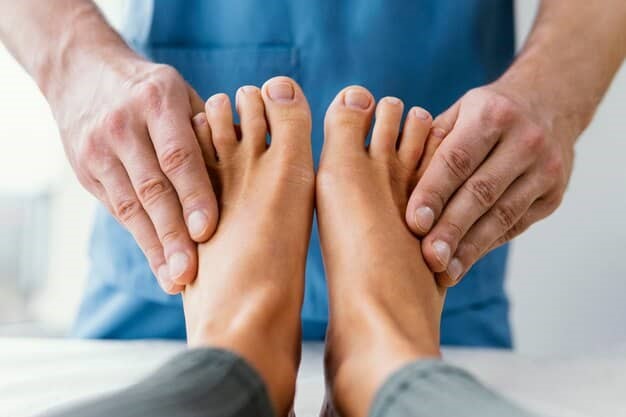
Reemplazo de Cadera / Hip Replacement
Vuelve a caminar sin dolor con un Reemplazo de Cadera con la mejor tecnología robótica de alta precisión y materiales de máxima calidad más asequibles para ti.
Price from:
Si tiene daños severos en la cadera debido a una osteoartritis, fractura de cadera, artrosis, artritis reumatoide, entre otras afecciones, es posible que necesite un tratamiento de reemplazo de la articulación de la cadera derecha o izquierda, también llamada Artroplastia Total de Cadera o Hemiartroplastia de Cadera, para reanudar su vida sin mayores limitaciones.
En Medical Boulevard le ayudamos a conformar un Programa de Reemplazo de Cadera según la indicación de su médico, con instituciones y especialistas adecuados a sus necesidades. Queremos acompañarle para que recupere planamente su salud y se sienta seguro y satisfecho en el destino de turismo de salud elegido.
¿Qué implica un Reemplazo de cadera?
Hip replacement is a surgical treatment to replace damaged parts of the hip joint with similar artificial parts or prostheses, which can be done using minimally invasive techniques and is feasible to perform during a medical tourism trip.
This surgical treatment is done in a hospital with an orthopedic surgery service, where the person may need to remain hospitalized for 1 to 3 days depending on their evolution and will require the assistance of a companion.
This treatment entails a subsequent physiotherapy process of between 3 and 6 months in your place of residence, to achieve the expected improvement.
What is the hip replacement treatment process like?
Antes del procedimiento debe abstenerse de fumar tabaco o cigarrillos y de consumir bebidas alcohólicas y sustancias nocivas. Si tiene obesidad o sobrepeso conviene bajar de peso.
Previous studies must be carried out that consist of a physical examination with the orthopedist, blood tests and x-rays or, exceptionally, an MRI.
It is advisable to find out about the need to use a cane, walker, wheelchair, crutches, elastic stockings, or other support implements after surgery, to acquire or coordinate them in advance during international travel and transfers, as well as to prepare the place where Postoperative recovery will be carried out and the place or medical center where the physical therapy will take place will be identified.
Two weeks before surgery, you should check the medications you take that may interfere with surgery, such as anticoagulants, anti-inflammatories, immunosuppressants, among others, with your doctor. If you suffer from chronic diseases such as diabetes, high blood pressure, heart disease, or others, you should make sure they are controlled.
¿En qué consiste la operación quirúrgica de Reemplazo de Cadera?
El día de la cirugía no puede beber o comer entre 6 y 12 horas antes del procedimiento, debe tomar los medicamentos que le indique el cirujano y presentarse a la cita a la hora señalada.
The operation is performed in an operating room by orthopedic surgery specialists, under general or regional anesthesia, with which the person will be asleep or will not feel pain from the waist down.
The surgeon makes an incision on the side of the hip, advances to the area of the joint, for which he can use modern less aggressive techniques such as minimally invasive hip arthroplasty, especially in younger and thinner people. The damaged parts of the hip socket are removed; articular cartilage and bones (part of the pelvic bone called the acetabulum) and/or the upper end of the femur bone (femoral head) and in their place will be placed prostheses made of metal or with plastic or ceramic components or coatings that resemble those natural and allow the function of the joint to be recovered.
The surgery lasts between 1 and 3 hours and then the person will be in a room to recover from anesthesia for a few more hours. You will remain in the hospital for 1 to 3 days to assess your progress and you will be asked to walk as soon as possible, even the next day after surgery. The removal of stitches or staples is carried out between 10 and 14 days later.
Luego de la cirugía es necesario realizar fisioterapia para lograr la recuperación completa de 4 a 6 meses después.
Beneficios del Reemplazo de Cadera.
Hip replacement treatment eliminates pain and swelling, corrects deformities, improves gait so you can walk, and regains mobility to perform daily activities.
Generally the result is excellent and you will notice a considerable change in your quality of life immediately that will be consolidated and improved as you progress in physical therapy and in your incorporation into daily activities and social life.
When is hip replacement indicated?
Your doctor will determine if you are a candidate to benefit from hip replacement treatment. However, you may be eligible if you are in any of these situations:
- There is pain in the hip that does not improve with medications, it prevents sleep, movements such as walking, getting up or climbing stairs.
- He suffers from a hip condition that has not improved after medical treatments and physiotherapy.
- Walking problems persist that require the use of canes or walkers.
- You have difficulty moving to carry out normal daily activities.
- You have a fracture of the head of the femur (hip fracture)
- He has a tumor in his hip joint.
Precios de procedimientos de Reemplazo de Cadera con Medical Boulevard.
Reemplazo Total de Cadera.
- Precio desde: $ 8 300 USD
Reemplazo Total de Cadera. (SMITH&NEPHEW) OXINIUM
- Precio desde: $ 9 300 USD
Revisión de Reemplazo Total de Cadera. (SMITH&NEPHEW)
- Precio desde: $ 12 900 USD (5 días de hospitalización)
Remoción y Tratamiento Antibiótico de Implante Total de Cadera. (SMITH&NEPHEW). (15 días de hospitalización)
- Precio desde: $ 17 900 USD
Recommendations of Medical Boulevard so that you are successful in your medical tourism trip with a hip replacement.
- Consultar al médico para saber si usted es candidato o elegible para un tratamiento de Reemplazo de Cadera.
- Ask the doctor for information about possible complications that this treatment may have in your case and how to deal with them, such as infections, thrombosis, fractures or dislocation of the hip prosthesis.
- Follow the instructions of the medical staff and care recommendations throughout the entire process, including postoperative recovery and rehabilitation, and not expose yourself to unnecessary risks, particularly during the return trip to your city or country.
- Contact the medical team immediately if you have any inconvenience with the procedure performed.
- After a hip replacement, you should modify your lifestyle habits and avoid running or doing high-impact sports, as well as take extreme fall prevention and self-care measures.
- Consider your medical tourism trip as an ideal time to commit to improving your lifestyle and making a lasting positive change for your health.
Hospitales
Check out the activities you can do in the destination of your choice in our Health Tourism Blog

